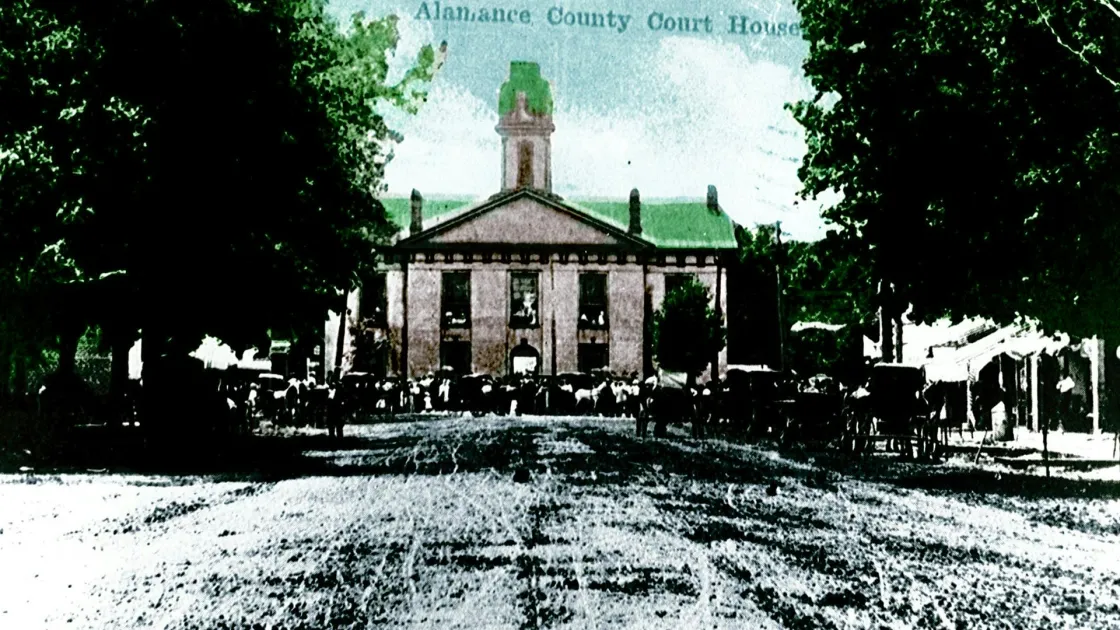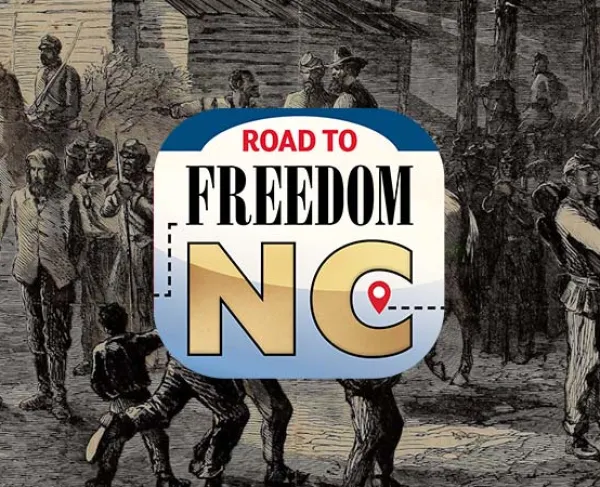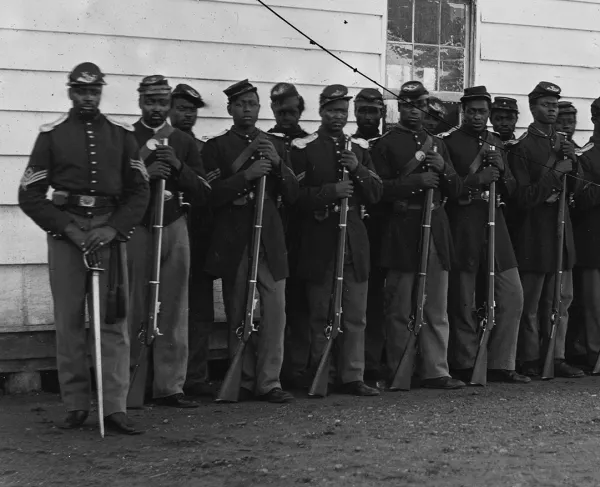Lynching of Wyatt Outlaw & the “Kirk-Holden War”
North Carolina
105 S Main Street
Graham, NC 27253
United States
This heritage site is a part of the American Battlefield Trust's Road to Freedom: North Tour Guide app, which showcases sites integral to the Black experience during the Civil War era. Download the FREE app now.

The life of Wyatt Outlaw — cut short by a Ku Klux Klan-led mob on the Alamance Courthouse Square in 1870 — illustrates the initial promise and tragic failure of Reconstruction to secure civil rights for African Americans.
Wyatt Outlaw was born enslaved in Alamance County in 1820, said to be the son of an unmarried White merchant and Jemimah Phillips, a Black woman who may have been free or enslaved by another family. He became a skilled carpenter and kept the name of his nominal owner. After the Civil War, Outlaw established his home and workshop on North Main Street in Graham where the First Baptist Church now stands, and helped purchase land for the Wayman Chapel AME Church now located three blocks further north.
Politically outspoken, he emerged a leader at the state’s second Freedmen’s Convention in 1866 and organized Republican groups encouraging Black and white workingmen to vote and serve their community. Republican Governor William Holden appointed Outlaw as a Graham town commissioner in 1868. The voters elected him to continue in that position. In 1869, the mayor selected him to serve on an armed police patrol with four other Black and white men to counter Klan terror.
Elected in 1868 to implement Congressional Reconstruction, Governor Holden, the Republican majority in the General Assembly, and many local Republican officials faced escalating violence from the Klan.
During the night of February 26, 1870, the Klan gathered more than sixty men who dragged Outlaw from his home to the cries of his children and threats against his mother. They hung him from an elm branch pointing toward the courthouse, the site later covered by a building extension at 105 S. Main Street. They left a note in his slit-open mouth warning “Beware, you guilty, both white and black.” A Klansmen later testified “Outlaw was hung because he was a politician...He had been a leader of the negroes; had been elected once. There was no other crime alleged.”
On March 7, 1870, Governor Holden declared Alamance County in insurrection and sent 40 federal troops which quieted the violence but produced no arrests. Otherwise federal officials failed to intervene. After Klansmen murdered a Republican state senator in the Caswell County Courthouse on May 21, 1870, Holden sent a militia led by Colonel George W. Kirk to Alamance and Caswell counties to put down the insurrection and arrest Klan suspects. Beginning in July, the militia occupation halted the Klan violence, produced 101 arrests, and a one-sided press backlash against what the Democratic opposition characterized as the “Kirk-Holden War.” It was a war without physical casualties. The suspected Klansmen won release from unlawful detention. Some were later indicted and tried in local courts without convictions. In August, the Democrats, riding their press victory, won control of the General Assembly. The militia withdrew in September. The North Carolina House impeached Holden in December, and the Senate removed the Governor from office on March 22, 1871.
In 1872, the Alamance County court indicted eighteen men for Wyatt Outlaw’s murder. They were never tried. In 1873, the state legislature, following federal example, granted amnesty for crimes committed by Klansmen in disguise before September 1871.




